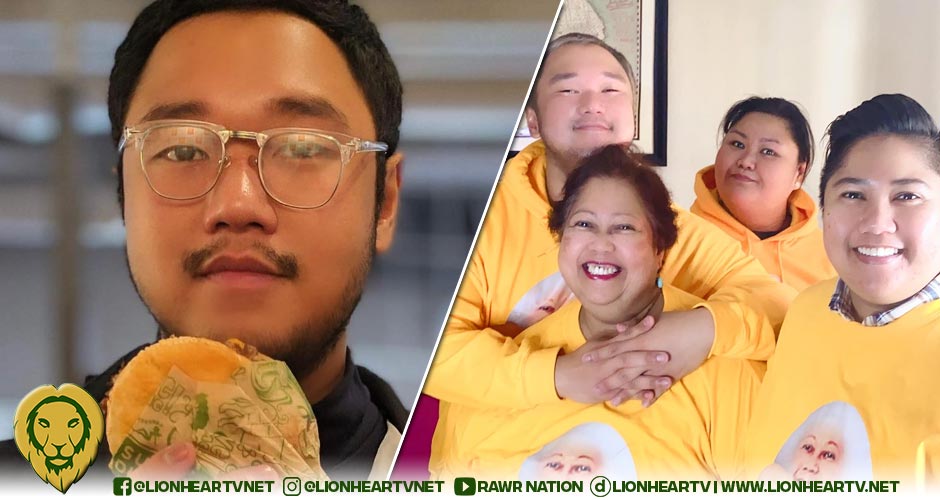Family dynamics often lead to misunderstandings and conflicts, especially as children grow into adulthood. These conflicts, if left unresolved, can lead to deeper emotional wounds and strained relationships.

In a candid discussion, content creator Oliver of Otakoyakisoba and his mother, Mama Lulu, tackled the complex issue of forgiveness between parents and their children in a video that resonated with many viewers.
In the video, Oliver posed a critical question to his mother: “If a parent makes a mistake and hurts their child, should the child be expected to immediately understand and forgive the parent?”
Mama Lulu’s response offered valuable insight into the often challenging nature of family forgiveness.
Mama Lulu emphasized that everyone, regardless of their relationship, has the right to feel hurt when wronged, even if the harm comes from a parent. She stated:
“Magulang, kapatid, o anak man, at kahit sino ka man, may karapatan kang magalit kung ginawan ka ng masama. Period.”
This assertion challenges the traditional expectation that children should quickly forgive their parents simply because they are family. Mama Lulu’s stance underscores the importance of acknowledging the pain caused by those closest to us.
Central to Mama Lulu’s message was the responsibility parents hold as protectors and role models for their children. She highlighted the trust that children place in their parents, noting that when this trust is broken, it can make the road to forgiveness much more difficult:
“Bilang magulang, ikaw dapat ang nagbibigay ng ehemplo sa iyong mga anak. Ikaw ang dapat na nagproprotekta sa mga anak mo.”
She stressed that parents must set the standard for good behavior and protect their children’s well-being. When parents fail in these duties, the emotional impact on the child can be profound.
Mama Lulu acknowledged that forgiveness, especially within families, is not instantaneous. Healing from emotional wounds requires time and self-care:
“Physical health, mental health, emotional health… lahat yan pinoproseso mo na yan. Hindi agad-agad.”
She advised that before a person can forgive, they must take time to heal mentally, emotionally, and physically. This process cannot be rushed, particularly when deep emotional scars are involved.
One of the key messages Mama Lulu conveyed was that forgiveness should not be granted without evidence of real change. She explained: “Tingnan muna natin kung nagbago na talaga ang isang tao. Action speaks louder than words.”
This perspective highlights the importance of accountability. Mama Lulu urged those seeking forgiveness to prove their remorse through consistent, positive actions, rather than empty apologies. Rebuilding trust, particularly within the family, requires visible and sustained effort.
Mama Lulu also acknowledged that emotional support doesn’t always have to come from family. In times of conflict, she encouraged people to seek support from those who understand and provide love, even if they are not related by blood:
“Palibutan mo ang sarili ng tao na nakakaintindi ng sitwasyon mo at nagpapaligaya sa iyo.”
She noted that sometimes, understanding and compassion can come from outside one’s immediate family, and finding such support can be crucial in the healing process.
Finally, Mama Lulu gave a blunt but powerful warning against forgiving too easily when no real change has occurred:
“Kung magpapatawad ka na hindi sila nagbabago, i**t ka rin. Pareho na kayo.”*
This direct statement underscores her belief that forgiveness should not be given blindly. Forgiving someone who hasn’t shown genuine remorse or change can lead to further pain and perpetuate a harmful cycle.
Mama Lulu’s candid discussion on forgiveness serves as a reminder that it is a deeply personal journey that cannot be rushed or taken lightly. For parents, her words are a wake-up call to honor their children’s trust and not expect automatic forgiveness for any wrongdoing. True forgiveness, according to Mama Lulu, must be earned through real change and understanding, not merely demanded.
